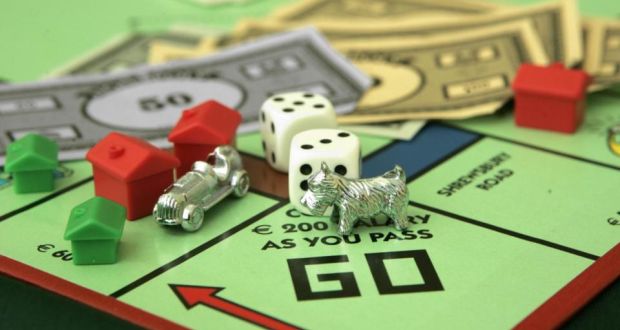Housing policy in both jurisdictions in Ireland has failed the citizens abysmally. One of the sources of communal revolt in the North was the unfair distribution of housing. As only ratepayers and their spouses had a vote in local elections, priority in housing was given to the unionist community, to allow them to control the councils.
Since the cessation of the armed conflict twenty years ago we may have peace, but there is no end to the violent effects of the capitalist system every day on our people. The housing waiting-list is longer now than it was back in 1968. With the ending of the Orange state, the two communities are now suffering the crisis in housing together.
As the dust settles, the time is fast approaching when citizens will realise that the enemy is not the religion of their neighbour but one common enemy: imperialism.
Under the Thatcher regime, much of the public housing stock was sold off to tenants. In 1991 there were 170,000 houses in public ownership; by 2016 this had been cut almost in half, to 90,000. Investment in new public housing is 400 per cent less than payments of public money in subsidies to private landlords. Payments totalling more than £400 million were made by the Housing Executive to private landlords in rent subsidies from the beginning of 2017 to the end of 2018; only £109 million during the same period was invested in new public housing.
The commodification and the transfer of housing provision from the state to the landlord class is unceasing.
With 70 per cent of households on the waiting-list now categorised as “in priority need” of public housing, this is the highest on record. There are 40,000 on the housing waiting-list, 10 per cent of whom are waiting more than five years. Though the average time spent on the waiting-list is between one and two years, some are on the waiting-list for decades.
In the South it is no better. According to the 2016 census, private rented accommodation is now the main form of tenure in cities and towns, while overcrowding has increased for the first time in more than fifty years. As in the North, this is a result of government policy of transferring the provision of homes to the private sector, selling off public housing to tenants, and ceasing, or reducing to a trickle, the building of public housing.
The Society of Chartered Surveyors in Ireland found in a recent survey that the cheapest two-bedroom apartment in Dublin costs €375,000. To qualify for a mortgage would require a deposit of €37,500 and an income of €96,000 a year. The applicants would also need to have no children. This excludes all couples on or below the average joint income of €88,000.
The average rent for this property is €2,000 a month, which would equate with a mortgage on a property worth €500,000—a nice little earner for the landlord class. Even if the landlord had to borrow to buy the property (though 53 per cent of all homes bought in 2018 were paid for in cash) they would be making a steady profit from the rent, as the tenant pays the full cost of mortgage.
Just as in the North, huge sums are paid to private landlords in rent subsidies: €1 billion is paid to landlords every year.
There were 68,693 people on the housing waiting-list in June 2019. There are 10,000 people categorised as homeless in the South. The homeless figures in the North are twice this, though they are calculated in a different manner.
As far as housing is concerned, there is nothing to celebrate in the hundredth anniversary of the partition of this country by Britain. Partition has not served the people’s housing needs; instead it has filled the pockets of the landlord class.
As the demand for the reunification of Ireland becomes louder, the working class must not be ignored this time. We must learn from our history and not repeat the mistakes of the past. This time we will not only have a democratic programme for our people, we will make sure it is implemented. As stated in the Proclamation of the Irish Republic in 1916, “We declare the right of the people of Ireland to the ownership of Ireland and to the unfettered control of Irish destinies, to be sovereign and indefeasible.”
Ireland will only be truly free when we are independent and sovereign and the people own everything, from the plough to the stars.






